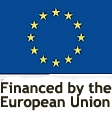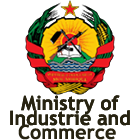UNCTAD Approach
UNCTAD’s mandate and approach aim at creating an enabling economic environment for inclusive and sustainable development by supporting developing countries, particularly LDCs, in the formulation and implementation of trade policies that are geared towards the achievements of UN 2030 Development Agenda, in particular the SDGs. UNCTAD technical assistance activities and programmes seek to enhance the productive and supply side capacity of developing countries, with a specific focus on Africa and LDCs, so as to secure a positive integration into the world economy and maximize the gains from their trade engagements at bilateral, regional and multilateral levels.
Accordingly, the following are some selected, among other areas, of UNCTAD assistance:
- Supporting developing countries in their participation in the multilateral trading system by reinforcing and or building the negotiating skills of their trade officials;
- Assisting LDCs in making use of existing initiatives and programmes such as duty-free and quota-free schemes, preferential rules of origin and the LDCs’ Services waiver under the General Agreement on Trade in Services (GATS) negotiations in the WTO;
- Providing technical assistance and capacity-building in the area of services trade and services policy reviews;
- Working on trade data and statistics, and analysis of trade for development;
- Providing technical assistance and capacity-building before, during and in the follow-up of the process of accession to the WTO;
- supporting African countries in their trade negotiations at the WTO as well as in the framework of their regional integration processes, including SADC, ACP-EU EPAs and the African Continental Free Trade Area (AfCFTA).
It is expected that UNCTAD intervention under this project will contribute to building, through a series of tailor-made training and coaching activities, the capacity and skills of trade officials and other Mozambican public and private relevant institutions to design and implement trade- related safeguards regime that is EPA and WTO consistent. UNCTAD intervention will; thus, help Mozambique to address the multiple technical challenges pertaining to the operationalization of EPA provisions (articles) on safeguard measures. Ultimately UNCATD assistance will enable Mozambique to adopt a legislative and regulatory framework for the enforcement of safeguards and other pertinent trade remedies instruments. The project activities will be carried out in a collaborative way involving all the project stakeholders, in particular the Ministry of Industry and Commerce (MIC), as the focal point for this component of the project, and UNIDO, as the overall project coordinator and implementing agency.
SPECIFIC OBJECTIVE 2: IMPROVED GOVERNMENT COORDINATION AND IMPLEMENTATION OF THE EPA TRADE SAFEGUARDS
The main technical assistance activities under this component will address the technical knowledge gap pertaining to EPA safeguard implementation issues. Therefore, technical assistance activities will be directed to build a trade defense regime in Mozambique in accordance with the EPA safeguards provisions.
Result 4 – Enhanced government knowledge on the legal and institutional framework required to apply EPA trade defense/safeguards articles
The EU- SADC Economic Partnership Agreement (EPA) identified in Part II, chapter II, (articles 32 through article 38)[1] seven (07) categories of trade defense instruments: anti-dumping and countervailing measures, multilateral, bilateral, agricultural, food security and Infant industry protection safeguards. Under these provisions, EPA parties are expected to administer the safeguards measures in a WTO consistent manner.
This result aims, therefore, at making a contribution to support Mozambique’s efforts to design and implement a coherent and best-fit national trade policy that is oriented towards addressing the multiple challenges arising from the SADC-EU EPA safeguard measures and trade defence instruments, as provided for in Part II Chapter II. UNCTAD intervention under this project will create the conditions to build trade safeguard capacity in Mozambique and enable it to transpose EPA articles on safeguards in its national trade related legal and institutional system.
Technical assistance activities under this project component will be delivered in the form of a series of intensive training courses/workshops for relevant government officials, private sector organizations, trade research institutions and other relevant national stakeholders. The training programme will introduce the participants to the main provisions on Safeguards while maintaining the linkages with WTO disciplines in this area to ensure the overall coherence of Mozambique’s legal obligations and trade policy under both EPA and the WTO. In this context, trainees will receive theoretical and practical learning aspects concerning particularly the scope, objectives and implementation issues of EPA articles on safeguards and allow them to operationalize these in Mozambique’s foreign trade regime. The training programme will provide for case studies and simulation exercises regarding the technical and legal issues involved in trade remedies, including definition and determination of the cases triggering safeguards measures, initiation of the necessary procedures including investigations, determination of injury, etc. The modality will be a “hands-on” approach allowing the trainees to better understand and conceive safeguards measures as part of the available trade policy tools and their intended objective. It is expected that at the end of the project, officials would be able to establish an operational safeguards regime in Mozambique.
Complementary to the specific area of safeguards, UNCTAD will work also with the Ministry of Industry and Commerce and other concerned institutions to strengthen the capacity of policymakers, trade negotiators and researchers for sound trade analysis based on the exploitation of various trade and market access (tariff and non-tariff measures) databases, in particular the UNCTAD TRAINS and UNCTADTstat databases. The Ministry of Industry and Commerce, Instituto Nacional de Estatisticas and Customs, will be introduced as well to trade analytical tools such as the World Integrated Trade Solution (WITS). The overall objective is to equip Mozambican authorities with the necessary skills for the design of efficient trade policy and the conduct of safeguards- related investigations and litigations’ processes on a well-documented and evidence-based fashion. By the same token, acquiring trade data and analysis capabilities would ensure the county’s effective participation in multilateral, regional and sub-regional trade negotiations on an informed basis.









